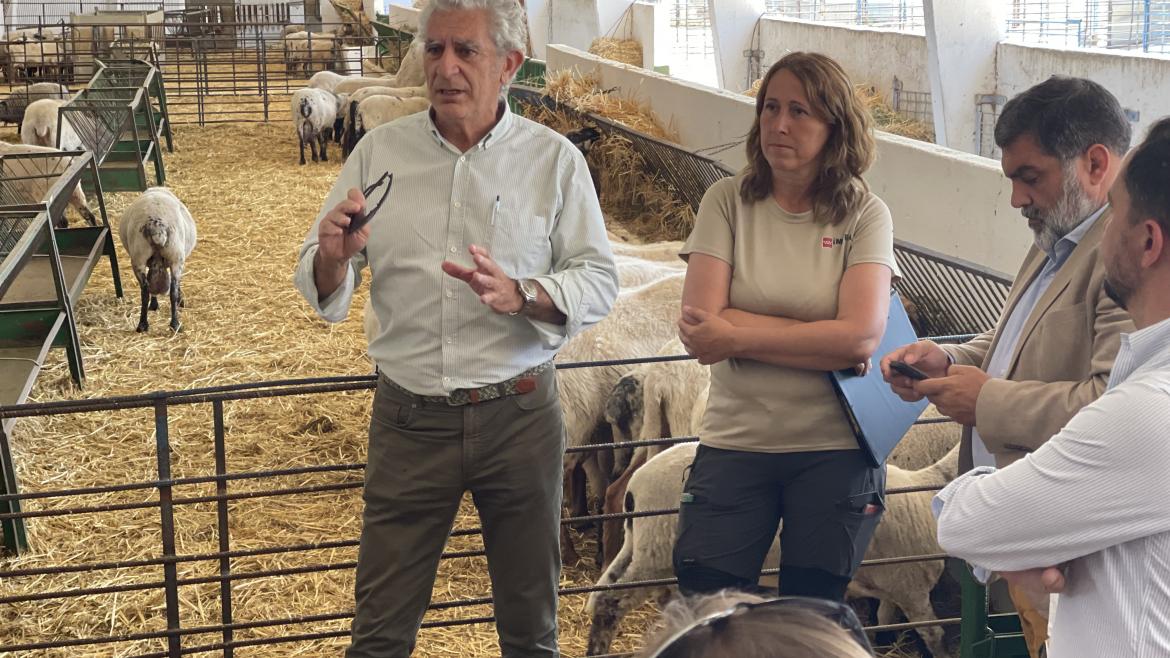La Comunidad de Madrid celebra el 50º aniversario de la finca experimental La Chimenea con sus proyectos para mejorar la producción agrícola y ganadera
La Comunidad de Madrid ha celebrado hoy el 50º aniversario de la finca experimental La Chimenea, ubicada en Aranjuez, que durante este tiempo ha desarrollado proyectos de investigación y mejora de la producción agrícola y ganadera de la región. Este centro pertenece al Instituto Madrileño de Investigación y Desarrollo Rural, Agrario y Alimentario (IMIDRA).

Con motivo de esta efeméride, el gerente del IMIDRA, Sergio López, y el director general de Agricultura y Alimentación, Ángel de Oteo, han asistido a los actos conmemorativos, que han incluido la jornada de promoción Cordero 100 por 100 Madrid. En ella se ha recordado el trabajo de este organismo en la producción y selección de dos razas autóctonas en peligro de extinción: la oveja Rubia de El Molar y la Negra Colmenareña. Su producto alimentario principal es un cordero lechal sacrificado entre los 25 y los 40 días, con un peso vivo de entre 9 y 12 kilos, tras crianza en lactancia natural. La carne presenta una gran calidad, es jugosa y con poca grasa.
Estas razas representan un modelo extensivo sostenible para la conservación de los sistemas agrícolas gracias a su aportación de materia orgánica a los suelos, que mantienen su fertilidad y actúan sobre la biomasa vegetal como sumideros de carbono. Además, ayudan a mantener la vegetación, colaboran en la diseminación de semillas y previenen los incendios al reducir la carga de combustible en el sotobosque y controlar el matorral.
El IMIDRA cuenta asimismo con un Centro de Cría y Selección de Ganado Ovino, con 300 ejemplares. En este programa de cría participan 22 explotaciones de Negra Colmenareña, con un total de 6.215 ejemplares, y 11 de Rubia de El Molar o Churra, que cuentan con 1.792 hembras reproductoras y 97 ejemplares machos. Muchos de sus propietarios han asistido a la cita en Aranjuez, junto con representantes de asociaciones de ganaderos, cooperativas y la industria agroalimentaria.
255 hectáreas para la investigación ganadera
La Chimenea cuenta con 255 hectáreas dedicadas en exclusiva a la investigación ganadera, repartida en ganados ovino, vacuno y porcino. En ellas se realiza el testaje de reproductores machos de razas puras de aptitud cárnica, la entrega de reproductores a ganaderos o la producción de cerdos miniatura para el mantenimiento de tres líneas genéticas puras.
Otro espacio de la finca se dedica a proyectos de innovación agrícola, con un Centro de Olivicultura y varias parcelas de ensayos donde se realiza la evaluación de nuevas variedades de cultivos extensivos; se estudia la aplicación de diferentes sistemas de riego; la plantación de cereales y leguminosas, y otros proyectos de control de la erosión hídrica, del nitrógeno o la gestión de residuos.


